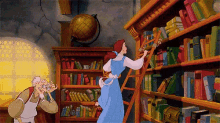What is a poet? Do I have to write like William Shakespeare in order for me to be considered a poet? Do I have to compile the most difficult words no one can read without a Thesaurus? Do I need to have 50 years of life experience to make my poems sound sophisticated?
The answer to all the questions above is no. Indeed, poetry is one of the oldest and most profound forms of human expression. From Homeric epics to contemporary spoken performances, poetry has evolved alongside civilization, shaping our emotions, stories, and philosophies.
But no, you do not need to have the most well-developed ideas or a 100,000 paged story for you to write poems. Instead, a poet can be anyone and anyone can be a poet.
But becoming a poet is not merely about writing verses; it is about developing a unique voice and immersing oneself in the world of language and meaning. You can be a poet as long as you have pen, paper, any application to record (or even your brain if you are good at memorization), and the willingness to craft, create and refine.
This guide will help you navigate the journey of becoming a poet, whether you wish to publish a poetry collection, perform at open mics, or simply write lines of poetic verses in your journal as a medium of self expression.

Image Credit: Thought Catalog from Pexels
Let us slide into your dms 🥰
Get notified of top trending articles like this one every week! (we won't spam you)1. Record and Read
This is why I love writing and especially poetry as a sensitive, pensive introvert: you get to record your feelings and get a tangible hold of it. This can be anywhere with anything. Any impulsive and seemingly random thoughts you would consider as trivial: it might be a question you never dared to ask, or a strand of thought you once would let evaporate into thin air.
What if the world collapsed the next second and I wouldn't be able to dig into my mother's shoulders and let her hair curtain my eyes? What if my body was an hourglass that leaked sand every second I existed?
In poetry, there is little to no censorship. Unlike academic essays or research papers you write at school, you do not need to research, nor gather data, nor cite your sources. The only thing you need is yourself: your opinions, your beliefs, your thoughts and emotions.
Yourself is not the only place to get inspiration from. You can also read the works of other poets. Reading poetry extensively allows you to familiarize yourself with different forms, styles, and voices.
You will discover what resonates with you and learn from the techniques of master poets. For instance, I read a lot of Ocean Vuong poems, and thus learn a lot about his use of metaphors and sensory details, all of which I can incorporate into my own writing. In poetry, there is barely any sort of "copying" or "stealing". There can only be an open-minded heart eager to learn, absorb and apply.
You should explore different styles of writing from different poets from different eras. Read poems from classical to modern. Engage with different literary movements, from romanticism, to confessional poetry, to contemporary free verse.
Through the process, also remember to take note of poetic techniques. Pay attention to rhythm, meter, line breaks, imagery, and diction. Annotate poems to see how they achieve their effects.

Image Credit: Cottonbro Studio from Pexels

Take the Quiz: Which Literary Fiction Should You Read Next?
Jump into the world of literary fiction with the one of these novels based on your existing favourites.
2. Develop and Write
But to be honest, as a published poem-writer myself, you do not have to know what you are writing about at all when first getting started. The essence of creative writing, and art of literature, in fact, lies in the unknown and exploration. It can start with very small things like a symbolism you came up with the other day you found powerful.
Then close your eyes, and let your words flow freely. Jot down everything that sparks light in your mind.
Not everything has to be logically connected. In fact, it is even better when it is not. Play with your words as if rolling a dice: give it a chance, shake and roll.
Every number you land on is big. It can be from a pine tree to a neighbor's cat, to the cereal you ate this morning. Every miscellaneous object that ignites inspiration and emotional connection with you is fine. Let your imagination grow as sprawling vines on brick walls. It should be one of the only places you can let yourself free. You can write anything you want.
You can scribble quotes, dreams, snippets of conversation, and unusual phrases, or write fragments of poems to develop later. An important aspect of writing would be to find your unique voice. A way to do that would be to write from personal experiences.
Draw inspiration from your memories, emotions, and surroundings, or even write from the point of view of historical figures or fictional characters. Anything you do: be your authentic self. Often the best type of poetry happens with no restrictions and self-imposed limitations. You should also experiment with syntax, imagery, and word choice to create fresh expressions.

Image Credit: Saba from Pexels
3. Expand and Engage
At some point, you might get hungry. You might no longer be satisfied with writing by yourself with you as the sole audience. When that happens, maybe it is time for you to connect and socialize.
Surrounding yourself with fellow poets and writers can be instrumental in your growth. You can join writing and poetry workshops, whether on site or online. There are a lot of universities or institutions that provide this sort of opportunity where you can share your poems, receive feedback and gain mentorship.
It is also important to meet new poet-friends like yourself. When doing things alone, you might lose your motivation shortly. Thus, it is essential to establish this sort of network where you can connect and share mutual experiences.
You can draw inspiration from each other, give feedback on each other's works and even get a writing buddy to help set up a good writing routine. In any way or form, having a friend to do it with you is always better than doing it alone.
Maybe you are still hungry. Then, it is time for you to share your works with a wider audience. You can start off small, such as starting your own poetry blog where you just post every poem you write and accumulate a fan-base.
You can also start submitting your poetry to local or digital literary magazines. Look for journals that publish poetry in your style and do some research. Even if you don't get accepted, it is perfectly okay. Even the most established poets get rejected. Use it as a source of motivation to continue revising and improving your work. You can also publish a collection or build a portfolio. Do anything to feed your hunger.
You have now mastered the essence and crucial steps of poetry writing. Now pick up your pen and start drafting your own poem!














